Stinging nettle (Urtica dioica) has a long history as a medicinal herb. Folklore features stinging nettle often across many cultures and beliefs, some stranger than others.
The Romans were said to have used the stalks of nettle to whack the phallus, and stimulate blood flow for erectile dysfunction (OUCH)! It was also used in the same way to stimulate hair growth in balding men. Both techniques indeed did work because it’s stimulated blood flow to the area.
The ancient Greeks used nettle as a diuretic and a laxative. In medieval Europe if we was used to treat and naturally reduce joint pain. People used to believe that pulling it out by the roots and shouting out and ill persons name would eliminate a fever. Stinging nettle has been used to make textiles like cloth, rope and paper since neolithic times. Its fibers are similar to hemp and flax, and it makes a great sustainable fiber. Because the fiber is hollow, it provides natural insulation. The German army used nettle for their uniforms in World War I and used its leaves to dye uniforms in World War II.
Stinging nettle is a perennial invasive plant found growing across all of North America, Canada, Europe, Asia, Africa and South America. It prefers moist, forested soil and is usually found on the edge of shady forests. The soft green leaves and stems of this plant are covered in stinging hairs called trichomes, which contain chemicals that produce a stinging sensation on the skin which can sometimes last for hours.
Despite this negative side, stinging nettle has amazing medicinal and nutritional properties which outweigh the negative.
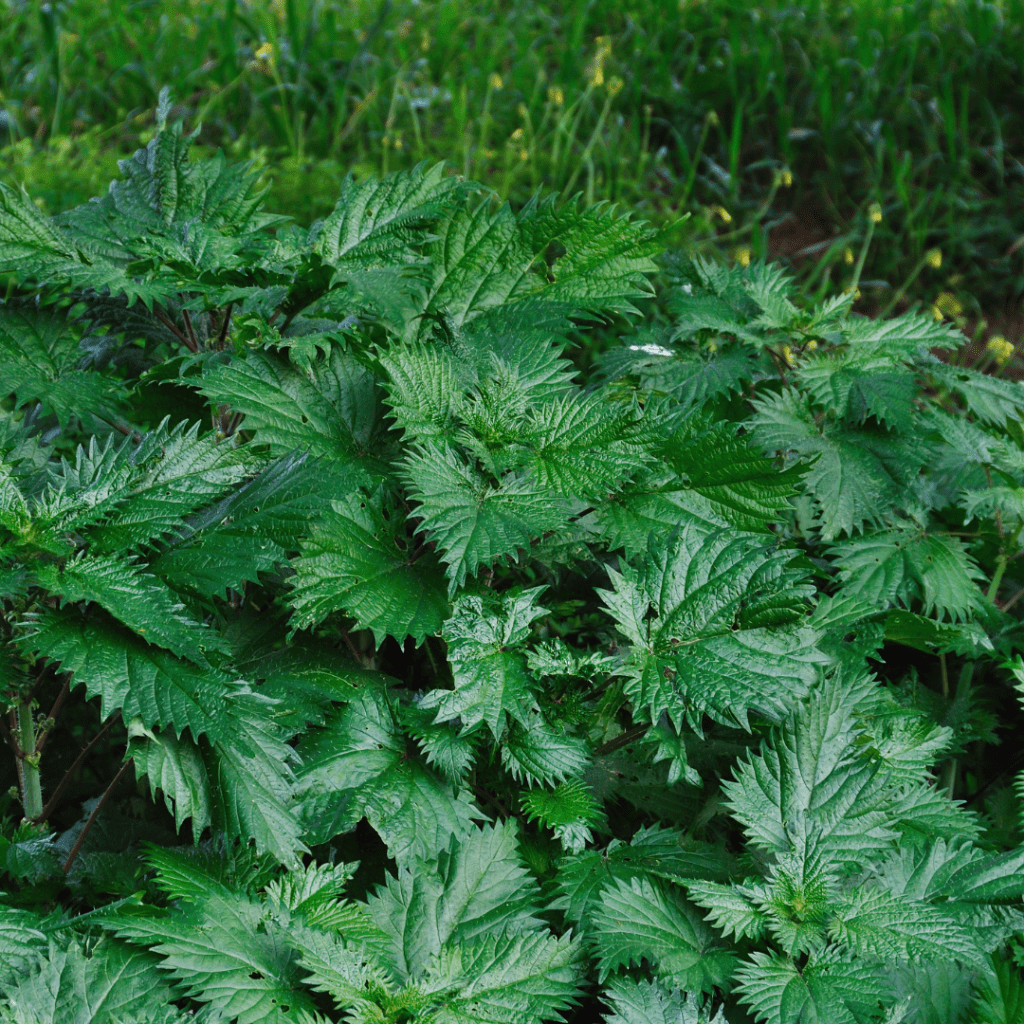
Extremely Nutritious
Most herbalists would probably agree that stinging nettle is one of the most nutritiously dense plants on planet earth.
The high nutritional content of stinging nettle accounts for many of its advantages, and also explains why this plant is covered in stinging hairs. If it did not have a way to protect itself, every herbivore on planet Earth would eradicate its species.
Nettle contains vitamins A, C, D, E, K, folate, and other B vitamins, as well as calcium and iron that are easily absorbed.
Magnesium, potassium, protein, beta-carotene, and chlorophyll are among the other nutrients. Stinging nettle includes polyphenols and has a high antioxidant value which aid in the body’s defense against free radicals, which can cause aging, some forms of cancer, and other disorders.
Research suggests that these polyphenols help prevent and manage inflammatory disorders, such as some forms of cancer, heart disease, and diabetes.
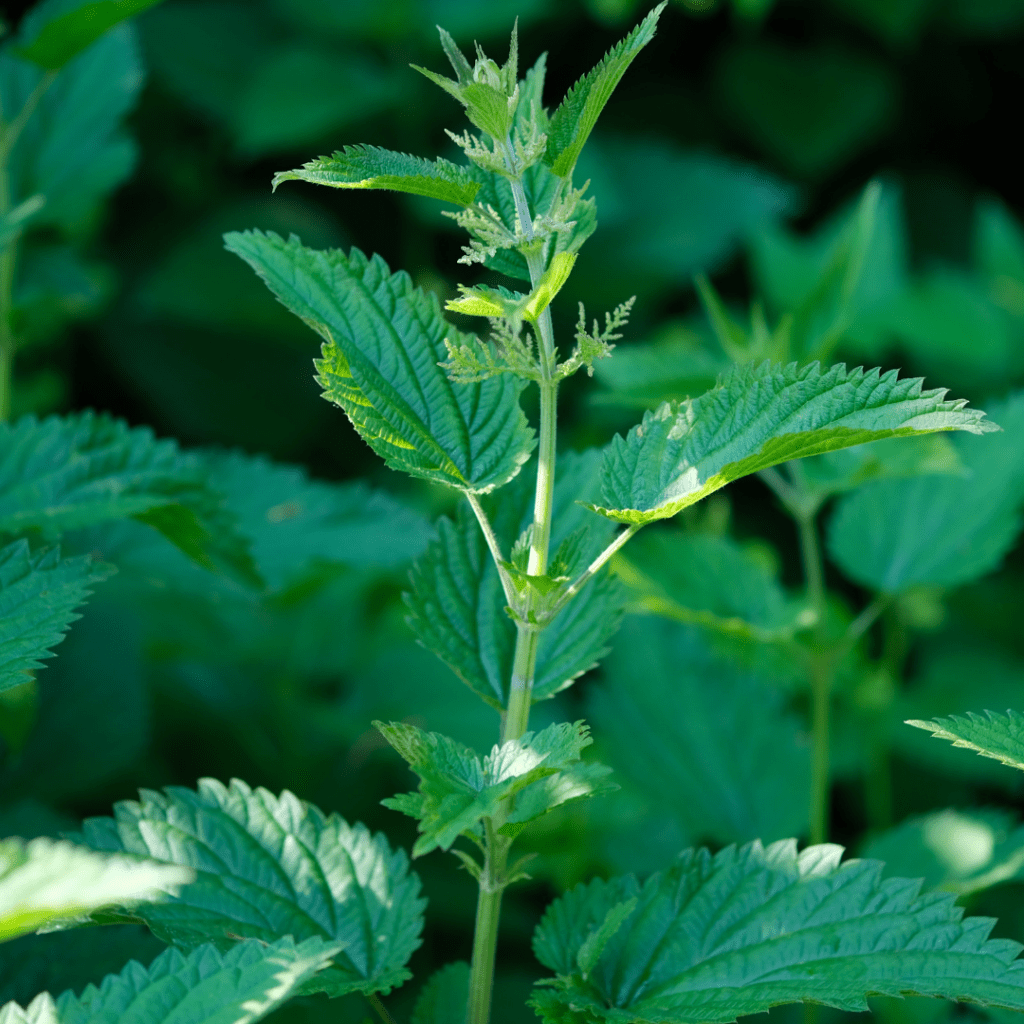
Stinging Nettle Medicinal Benefits
May Combat Allergies: Nettle is widely considered a natural antihistamine and as usually recommended by herbalist for seasonal and chronic allergies. Research shows it can inhibit several of the inflammatory events that cause the symptoms of allergic rhinitis.
Research has pinpointed the chemical pathways with which nettle interferes to reduce these symptoms. Upon contact with an allergen, histamine is released from mast cells and basophils. Histamine receptors (of which there are 4) are then activated, with H1 and H2 being the ones most associated with allergic responses.
Histamine-1 receptors are found in the walls of blood vessels, particularly in the respiratory system and cardiovascular system. When they are activated by histamine, they set off various reactions, including increasing the permeability of blood vessels. This promotes the movement of immune cells, and increases the sensitivity of sensory nerves in the respiratory tract. This makes the whole respiratory system more likely to react to anything it encounters.
Nettle is helpful here as it has antagonist and negative agonist activity, meaning it may block the receptor sites that histamine usually latches on to. Nettle also may inhibit tryptase, an enzyme that is released alongside histamine and which promotes its effects. Inhibiting it is therefore useful in reducing allergic responses.
May Help Prostate Disorders: One of the best medicinal properties stinging nettle has is its ability to help treat and prevent prostate disorders.
About 50% of men between the ages of 51 and 60 have BPH (benign prostatic hyperplasia). That number jumps to 70% among men aged 60 to 69 and around 80% of men over 70 years of age.
Many clinical trials have been conducted which show amazing evidence for stinging nettles effectiveness for prostate disorders. In Germany, studies involving a total of 15,000 men with benign prostatic hyperplasia, nettle root extract produced significant improvements in prostate size, frequency of urination, nocturnal micturition and post-void residual urine. The traditional use of nettle root extract in Germany to treat prostate problems has led to numerous clinical trials being conducted.
Stinging nettle root works to optimize and stabilize the endocrine system, binding to excess testosterone and other androgens and to estrogen hormones in the body, and removing or distributing them when and where they are needed. Nettle roots contain sitosterol, sitosterol-beta-D-glucoside, other sterol derivatives, tannins, phenolics, ligands including isolaric, iresinol and neoolivil, and other compounds. These all markedly inhibit the enzyme 5-alpha reductase. Impeding this enzyme means there is less creation of DHT, a strong testosterone breakdown product that can over-stimulate prostate cells and contribute to benign prostate enlargement.
Another prostate condition that is said to affect approximately one-quarter of all American men, according to the Prostate Cancer Foundation (PCF), is prostatitis. Prostatitis involves having aninflamed or infected prostate and, like BPH, its is not a cancer of the prostate, but the PCF does indicate that there is a question as to whether continued inflammation of the prostate may lead to the eventual development of prostate cancer.
To learn more about prostate health and stinging nettle, continuing reading here.
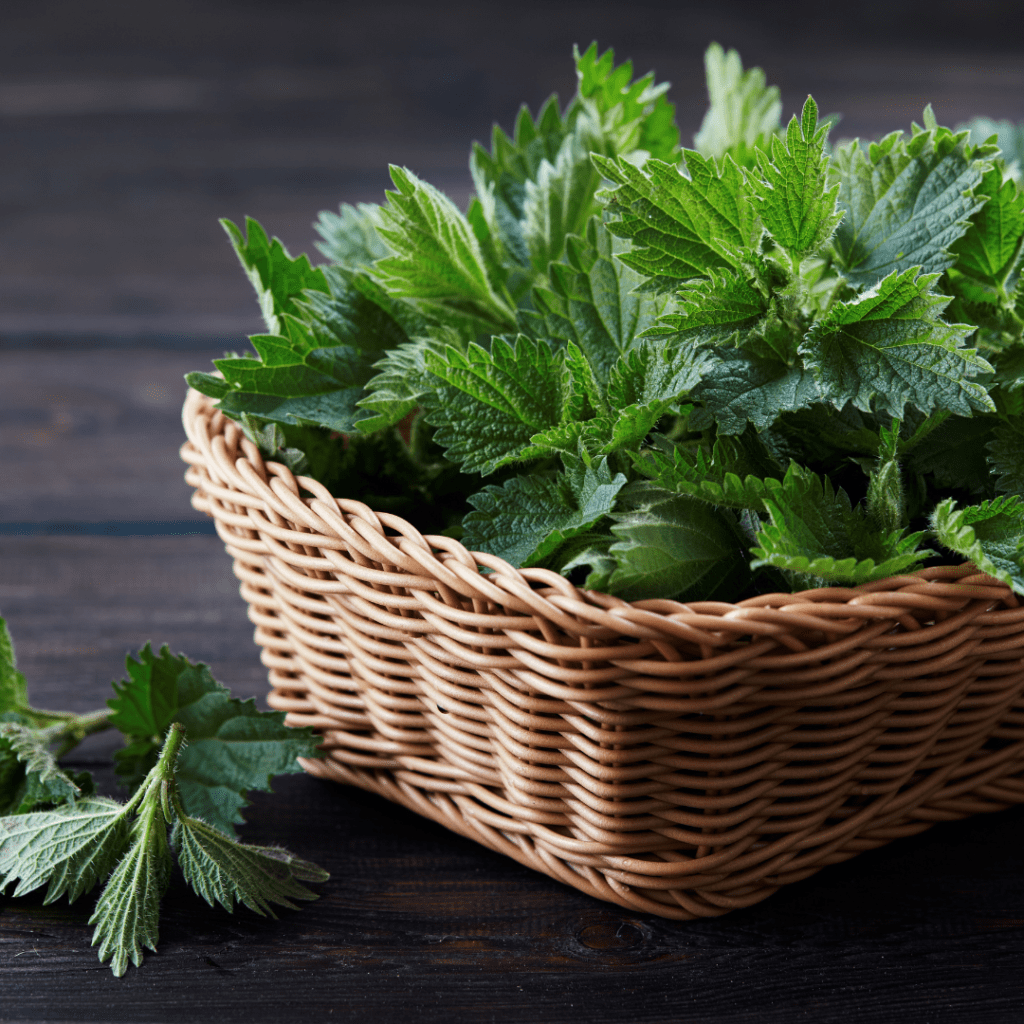
May Reduce Inflammation: Inflammation is your body’s way of healing itself and fighting infections. However, chronic inflammation can cause serious health concerns. Stinging nettle harbors a variety of compounds that have shown to help decrease inflammation.
In animal and test-tube studies, stinging nettle reduced levels of multiple inflammatory markers by interfering with their production. In human studies, applying a stinging nettle cream or consuming stinging nettle products appears to relieve inflammatory conditions, such as arthritis.
In one 27-person study, applying a stinging nettle cream onto arthritis-affected areas significantly reduced pain, compared to a placebo treatment. In another study, taking a supplement that contained stinging nettle extract significantly reduced arthritis pain. Additionally, participants felt they could reduce their dose of anti-inflammatory pain relievers because of this capsule.
May Lower Blood Pressure: Nearly half of adults in the United States have high blood pressure. High blood pressure is a serious health concern because it puts you at risk of heart disease and strokes, which are among the leading causes of death worldwide. Stinging nettle was traditionally used to treat high blood pressure. Animal and test-tube studies illustrate that it may help lower blood pressure in several ways.
For one, it may stimulate nitric oxide production, which acts as a vasodilator. Vasodilators relax the muscles of your blood vessels, helping them widen. In addition, stinging nettle has compounds that may act as calcium channel blockers, which relax your heart by reducing the force of contractions. In animal studies, stinging nettle has been shown to lower blood pressure levels while raising the heart’s antioxidant defenses.
May Aid Blood Sugar Control: Both human and animal studies link stinging nettle to lower blood sugar levels. In fact, this plant contains compounds that may mimic the effects of insulin. In a three-month study in 46 people, taking 500 mg of stinging nettle extract three times daily significantly lowered blood sugar levels compared to a placebo.
Adaptogenic Herb: Adaptogens are herbs that help our bodies adapt to stress. They work to counteract the effects of stress in the body. Stress causes very real physical changes in the body, including harming the neurological, endocrine, and immune systems.
Adaptogens work at a molecular level by regulating a stable balance in the hypothalamic, pituitary, and adrenal glands. These are involved in the stress response. They work by attacking the stress response in the body. Typically, when our bodies are stressed, we go through three stages of stress:
~ Alarm phase
~ Phase of resistance
~ Phase of exhaustion
As we encounter a stressor — say we start lifting weights, our body responds by kicking out hormones like adrenaline that improve muscle performance and increase our ability to concentrate and pay attention to the task at hand in the phase of resistance. Our body is literally resistingthe stressor, so we feel energized and clearer, thanks to our body giving us a boost to fight the stressor. And then, as we fatigue, we enter in the exhaustion phase. Adaptogens basically stretch out that sweet spot in the middle, the phase of resistance, allowing us to hang out in the powerful part longer.
In a nutshell, adaptagens are beneficial herbs for your overall health and wellbeing.
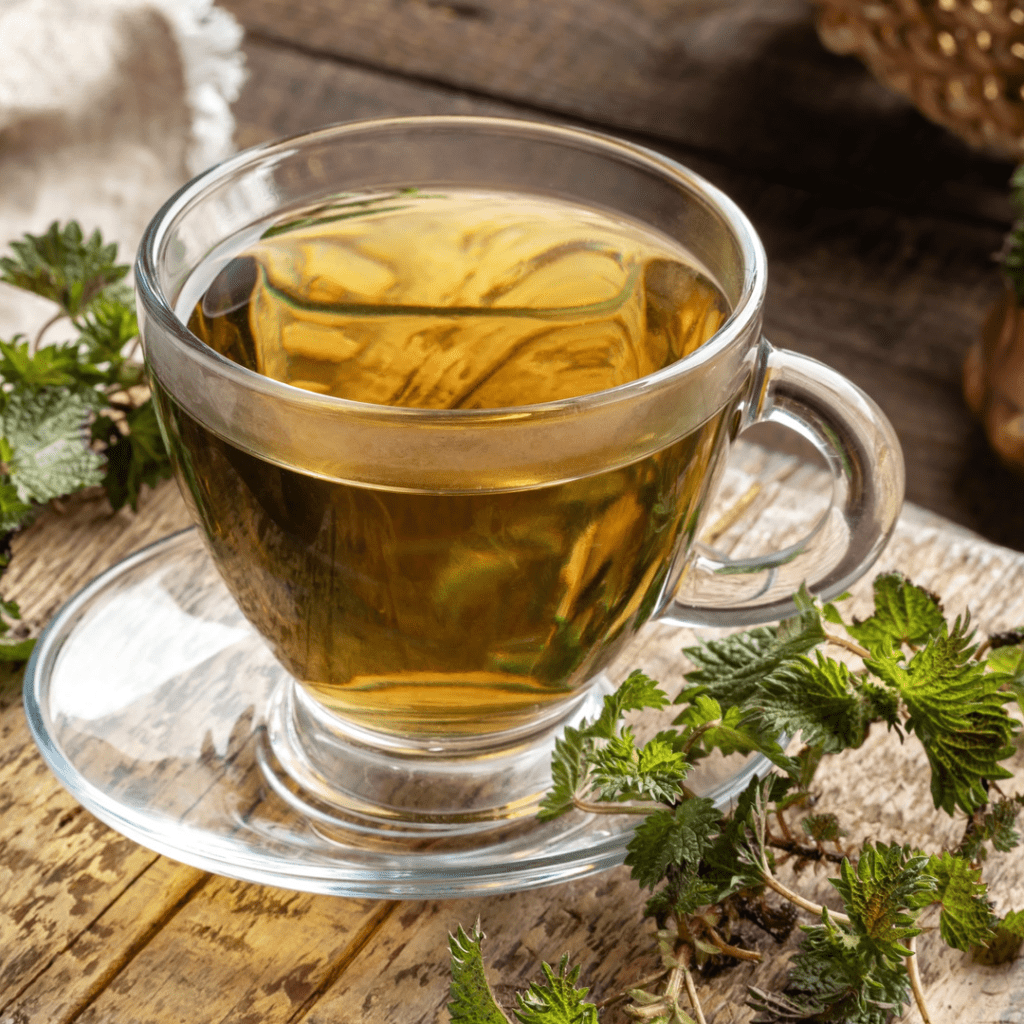
Ways to use Stinging Nettle
Because stinging nettle is covered in stinging hairs, it should never be used or consumed raw. Otherwise it could cause severe irritation in the throat. Drying or heating the herb is required to make nettle leaves safe for consumption.
Nettle Tea: Making an herbal tea is the oldest and most basic of all remedies.
• 1 – 3 teaspoons DRIED nettle
• 1 cup boiling water
• 1 – 2 teaspoons raw local honey (optional)
Bring water to a boil. Pour over nettle leaves inside of a mug and steep 10 minutes. Strain, add honey and enjoy!
Tincture: Tinctures are liquid extractions of the medicinal properties of plants, infused into alcohol. They are easy to make, efficient and effective. They are also the preferred choice by most herbalists. If you are not familiar with making a tincture you can follow our step-by-step guide here on the process.
If you’d like to experience the benefits of stinging nettle, without the hassle of making your own remedy, you can purchase our Stinging Nettle Elixir here.
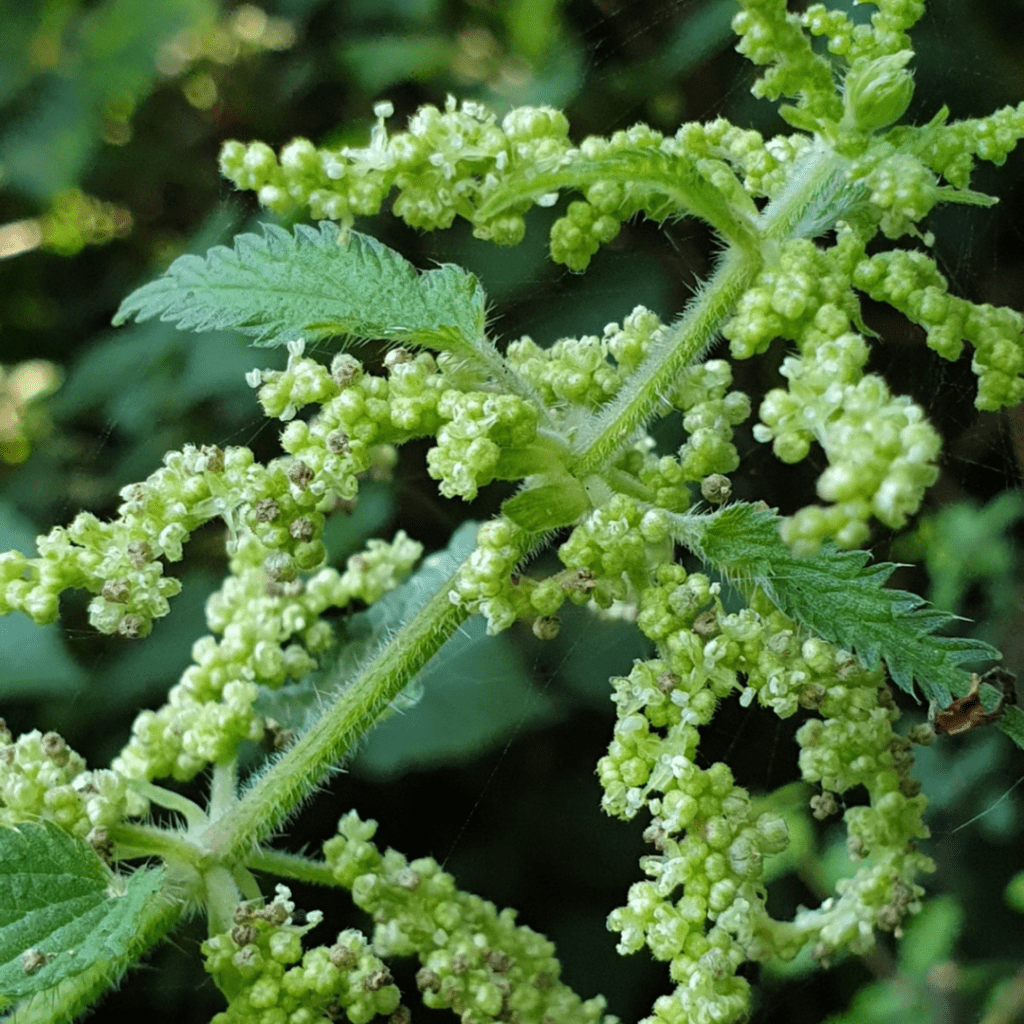
Culinary uses: Because stinging nettle is a highly nutritious plant, it makes a great green to add to any dish.
To use fresh nettle, heat up a big pot of salted, boiling water. Cook nettles for about 45 seconds to one minute then strain. This will render all of the stinging hairs harmless.
Afterwards you can proceed with adding to any recipe. Saute as you would other greens or add to eggs or quiche. Nettle soup is delicious, or make a wild green dip!
You can also use stinging nettle in dried form. Add dried nettle to soup’s, stew, stuffed shells, pasta for color, as a garnish, etc. The possibilities are literally endless!!
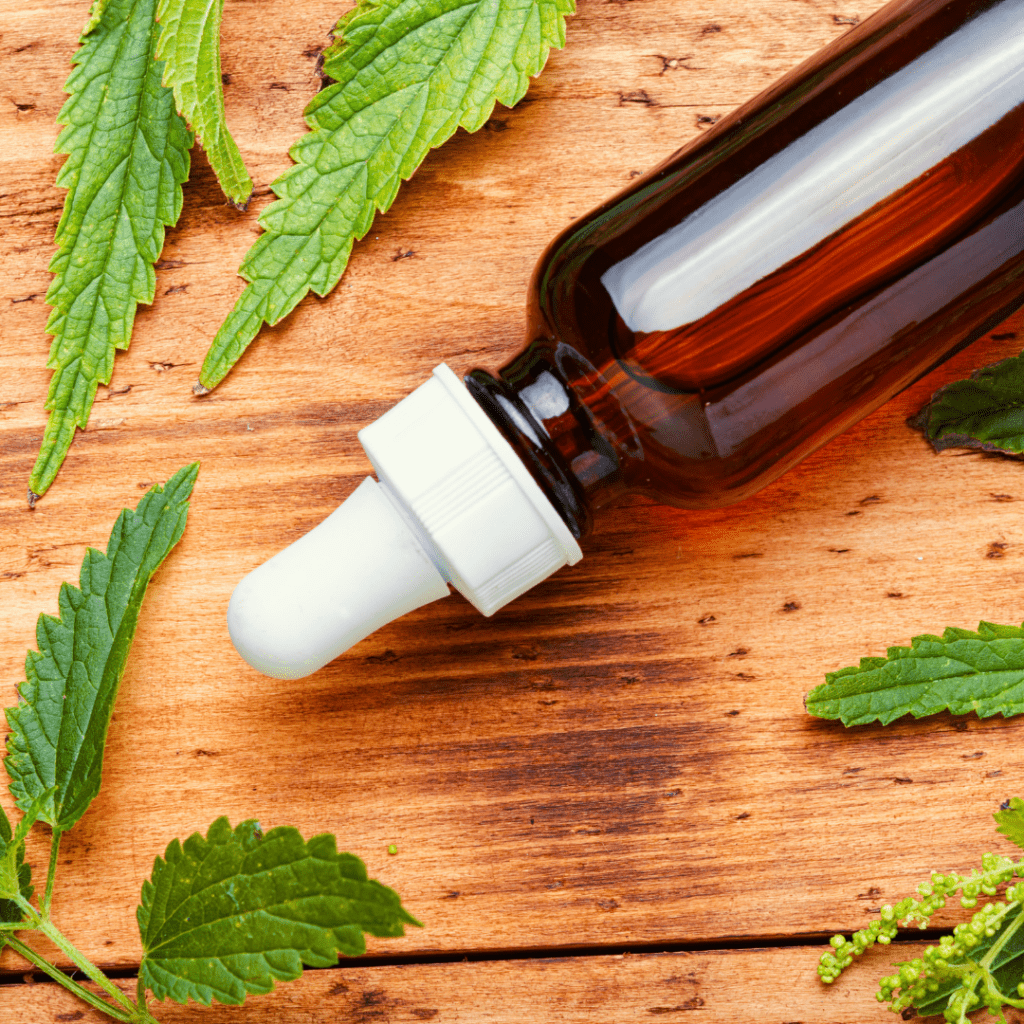
Safety Considerations
Consuming dried or cooked stinging nettle is generally safe. There are few, if any, side effects.
Pregnant women should avoid consuming stinging nettle because it may trigger uterine contractions, which can raise the risk of a miscarriage. Speak to your doctor before consuming stinging nettle if you’re taking one of the following:
• Blood thinners
• Blood pressure medication
• Diuretics (water pills)
• Diabetes medication
• Lithium
Stinging nettle could interact with these medications. For instance, the plant’s potential diuretic effect may strengthen the impact of diuretics, which can raise your risk of dehydration. Talk to your doctor first if you are pregnant, nursing or taking medication. View our disclaimer here.
Stinging nettle is by far one of the best medicines on planet Earth. It’s nutritional and medicinal properties make it an extremely valuable herb. It’s a must have for any botanical apothecary!
Stay Wild
Sources below
https://www.ncbi.nlm.nih.gov/pmc/articles/PMC9253158/
https://www.mountsinai.org/health-library/herb/stinging-nettle#:~:text=Stinging%20nettle%20has%20been%20used,benign%20prostatic%20hyperplasia%20or%20BPH).
https://www.herbalgram.org/resources/herbalegram/volumes/volume-15/number-7-july/food-as-medicine-stinging-nettle-urtica-dioica-urticaceae/food-as-medicine/
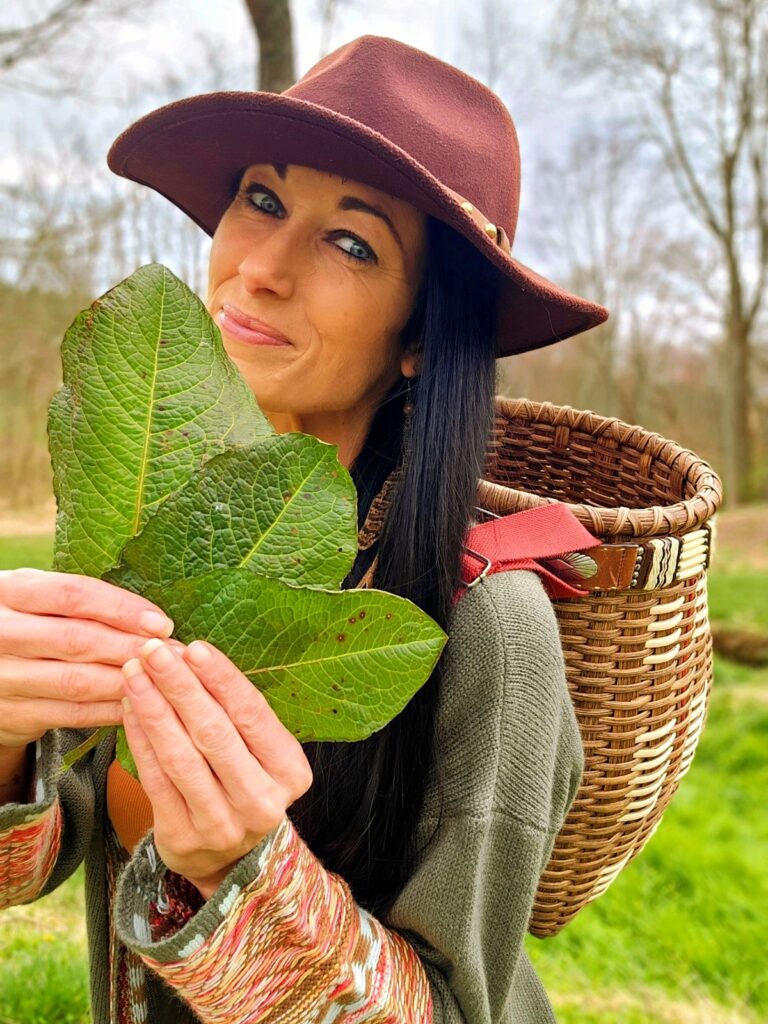
Kayce Heister
Kayce is a Clinical Herbalist, Naturopathic Practitioner (HHP), Active Forager, Wild Food Chef and Mother of three. She has spent the last 20 years practicing herbalism and natural health, and spends most of her time educating others on the amazing potential the natural world can offer.